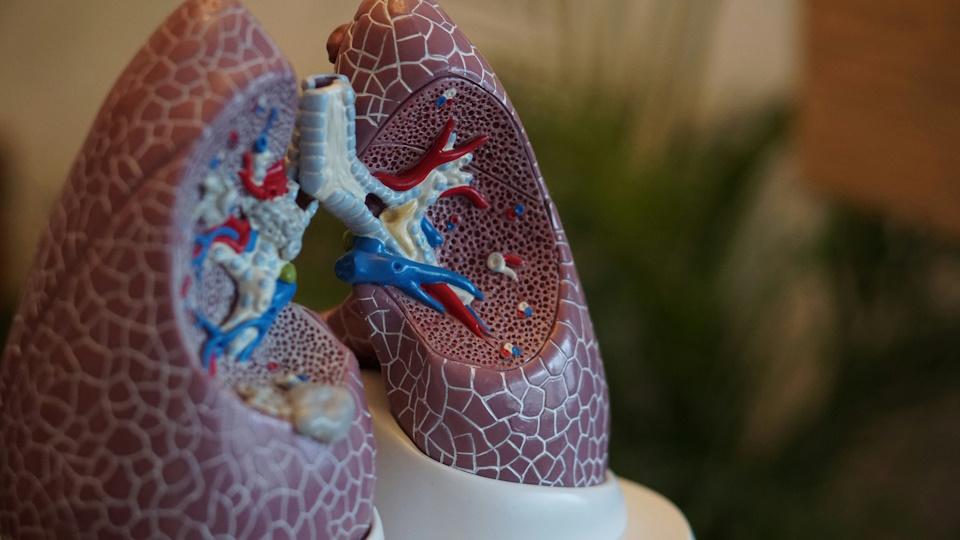AZ, Daiichi eye December verdict for TROP2 ADC

The FDA has started a review of AstraZeneca and Daiichi Sankyo’s datopotamab deruxtecan as a therapy for lung cancer, the second drug in their antibody-drug conjugate (ADC) alliance, with a decision due by 20th December after a standard review.
Datopotamab deruxtecan or Dato-DXd has been submitted for approval as a treatment for adult patients with locally advanced or metastatic non-squamous non-small cell lung cancer (NSCLC) who have received prior systemic therapy.
The TROP2-targeting drug is in the same class as Gilead Sciences’ already-approved Trodelvy (sacituzumab govitecan), which is FDA-approved for previously treated metastatic triple-negative breast cancer (TNBC), hormone receptor-positive/HER2-negative metastatic breast cancer, and metastatic urothelial cancer.
In the TROPION-Lung01, Dato-DXd showed a statistically significant improvement in progression-free survival (PFS) in NSCLC patients treated with at least one prior therapy when compared with docetaxel, a standard form of chemotherapy for this group. There was also a trend towards improved overall survival (OS), although, that data is not yet mature.
The patient population in TROPION-Lung01 was a mixed group, with and without genomic alterations, which suggests that Dato-DXd could end up with a broad label if approved by the FDA as a second-line option after cancer immunotherapies and drugs targeted at specific mutations. At the moment, patients in this group are usually treated with conventional chemotherapy.
While Dato-DXd and Trodelvy are currently aimed at different cancers, there will soon be overlaps that could bring them into direct competition.
For example, AZ and Daiichi Sankyo are running studies of their ADC in breast cancer, starting with previously treated inoperable or metastatic HR+/HER2- breast cancer in the TROPION-Breast01 study – data from which has also been submitted to the FDA.
Meanwhile, Trodelvy is being compared to docetaxel in the phase 3 EVOKE-01 trial in relapsed NSCLC, although, that did not meet its primary endpoint of an improvement in OS. Gilead has said it is exploring a trend towards improvement in a subgroup of patients who did not respond to prior immunotherapy.
AZ licensed rights to Dato-DXd in July 2020 for $1 billion upfront plus up to $5 billion in regulatory and sales milestones. It was the second major licensing deal between the two companies, coming after a $6.9 billion deal for HER2-directed ADC Enhertu (trastuzumab deruxtecan) in the previous year.
More Tagrisso data in lung cancer
In other news this week, AZ reported the results of the phase 3 LAURA trial of its EGFR inhibitor Tagrisso (osimertinib) in early-stage lung cancer, setting up another regulatory filing for the company’s top-selling drug.
LAURA is comparing Tagrisso to placebo, both given after chemoradiotherapy (CRT), in patients with unresectable, stage 3 EGFR-mutated NSCLC, a group who have a chance of getting a cure with treatment. The 216 subjects in the study had seen no progression in their cancer after CRT.
Top-line results reported by AZ indicated a statistically significant improvement in PFS, which the company said was “clinically meaningful” and a trend towards an improvement in OS that will be followed over time.
The new study, combined with earlier results from the ADAURA trial of Tagrisso as adjuvant treatment of EGFR-positive NSCLC patients that showed an improvement in survival with the drug, shows that EGFR inhibitors can have a real impact in early-stage lung cancer and should be used in treatment as early as possible, said AZ.
That would rely on greater use of testing to identify patients whose tumours carry EGFR mutations. AZ is running two other studies of Tagrisso in early-stage NSCLC – NeoADAURA in the neoadjuvant setting and ADAURA 2 in the adjuvant setting – that, if positive, could make the case for testing even stronger.
The new data came as Tagrisso was approved by the FDA as a combination with chemotherapy for frontline treatment of patients with locally advanced or metastatic EGFR-positive NSCLC.
Photo by Robina Weermeijer on Unsplash













